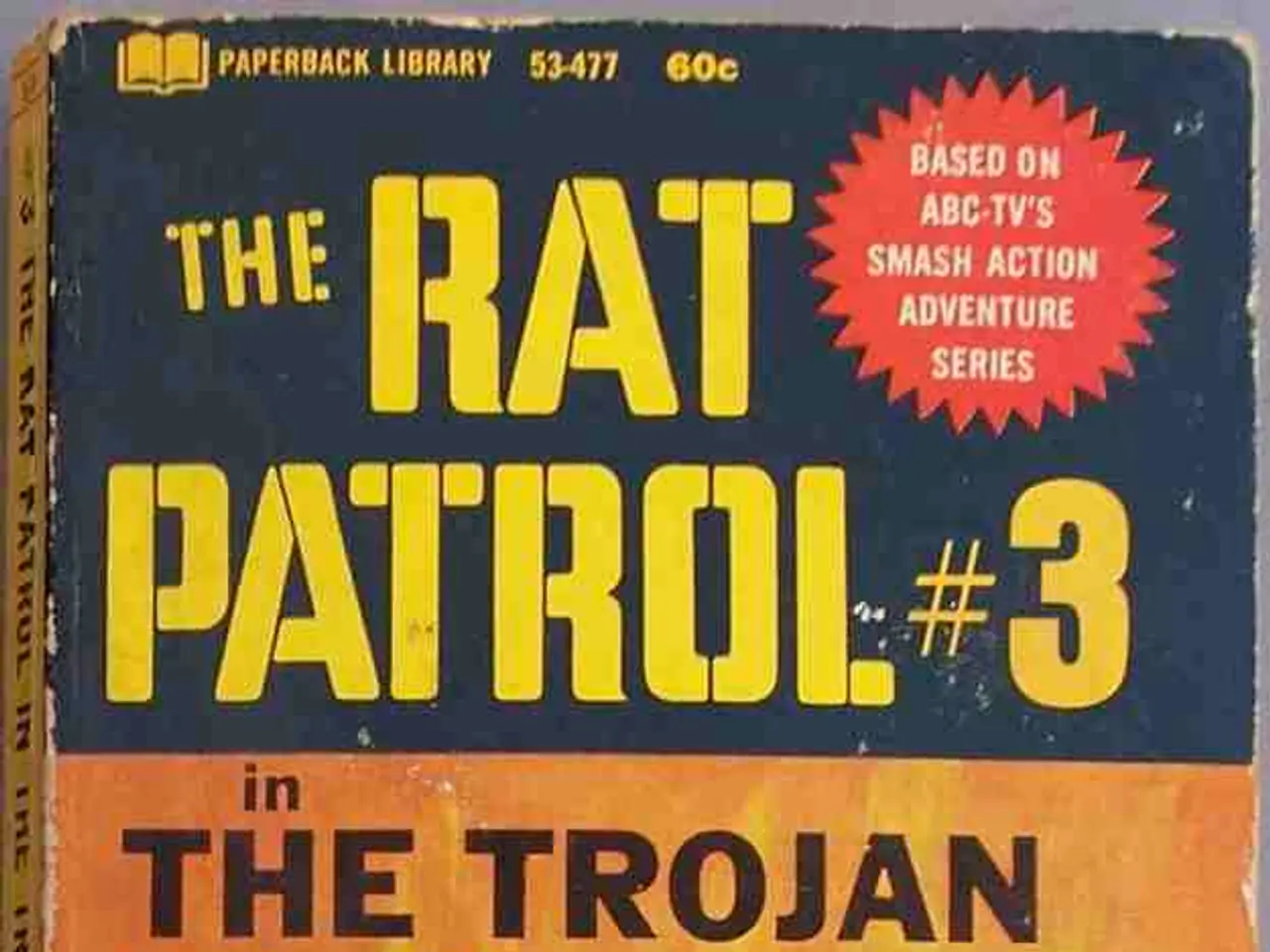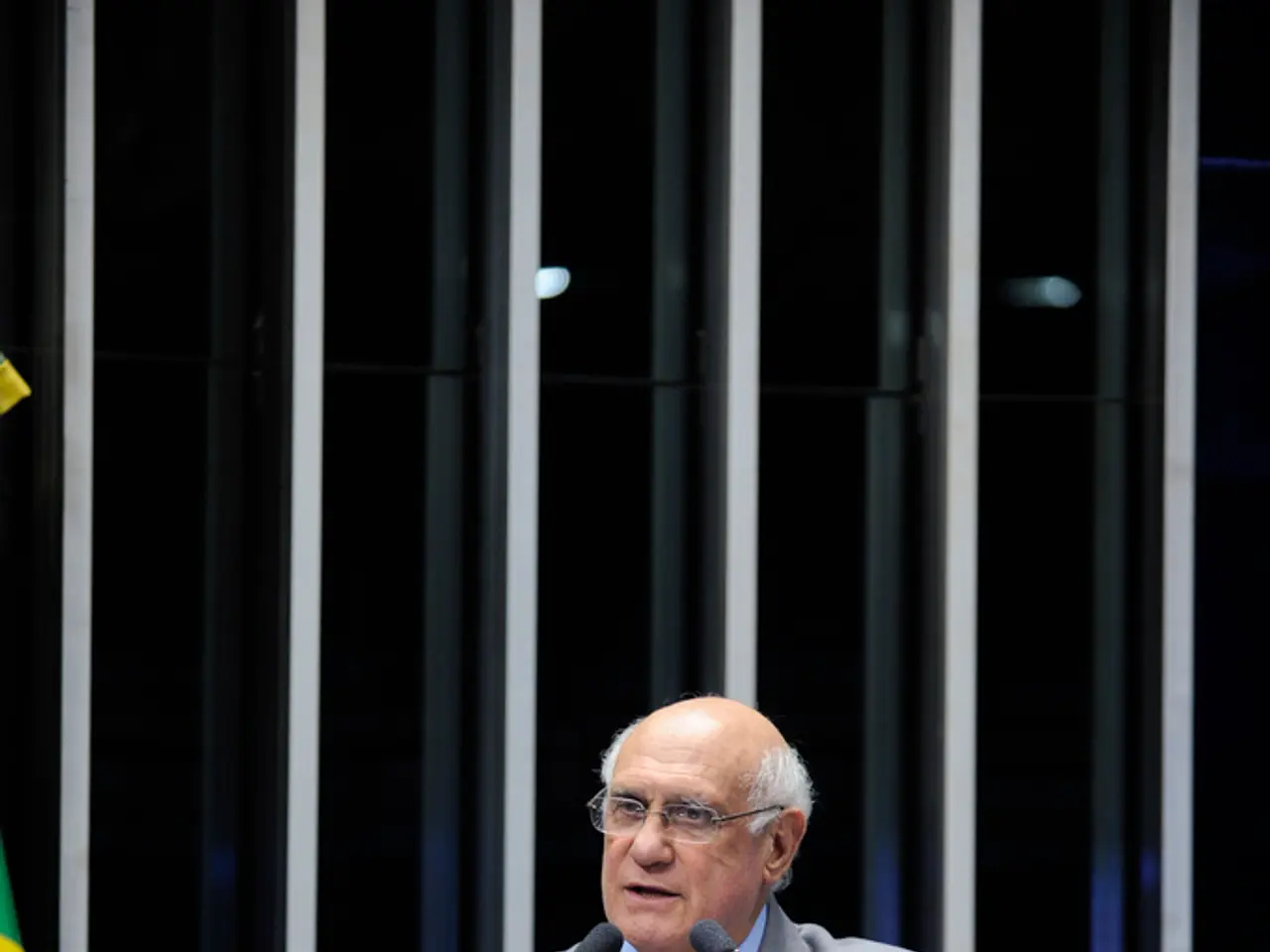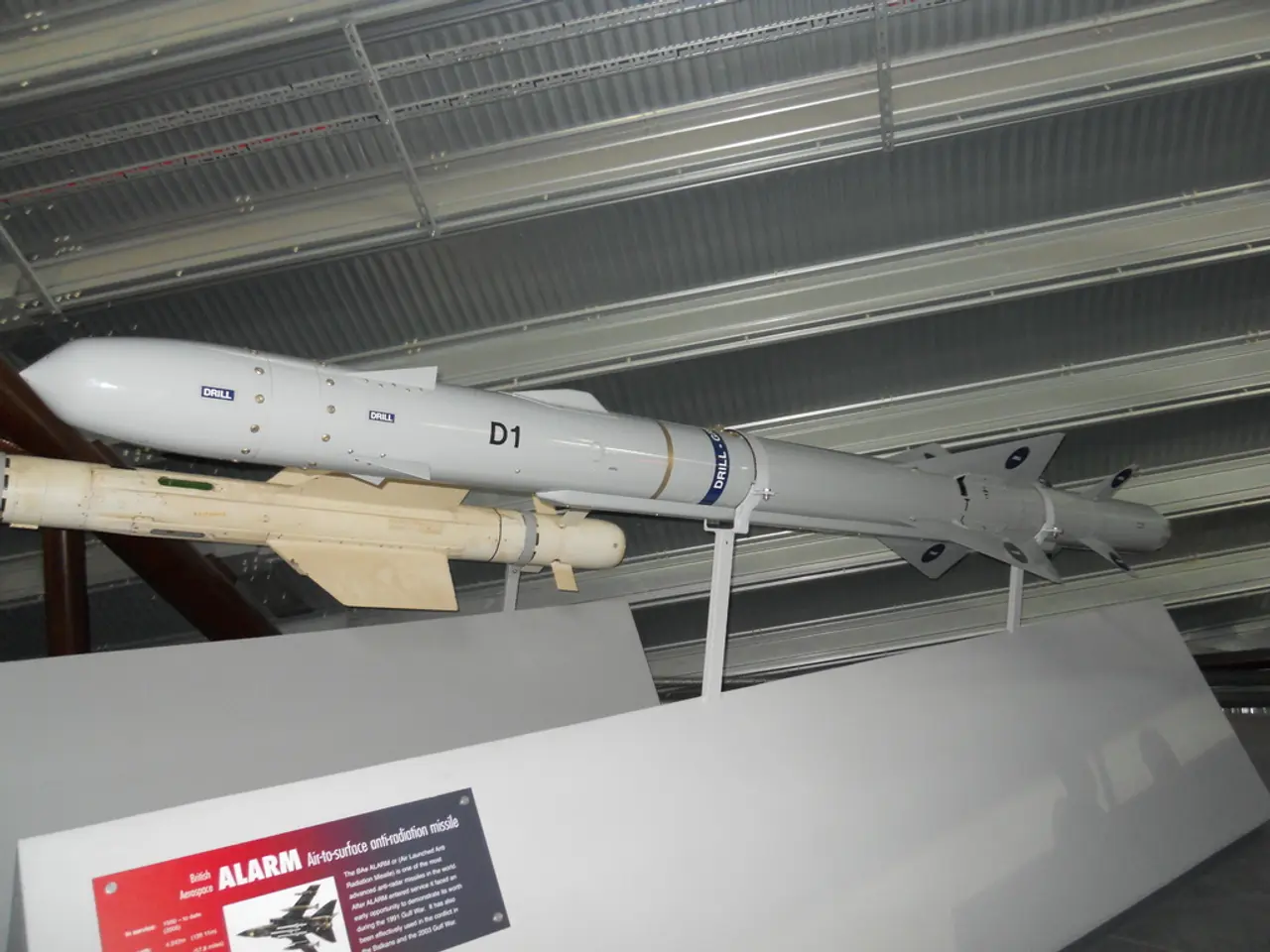Nuclear submarines positioned near Russian borders by Trump
In a move that signals heightened readiness and a willingness to demonstrate military deterrence, U.S. President Donald Trump has ordered the tactical redeployment of two nuclear-powered Ohio-class submarines closer to Russia. This decision comes in response to "highly provocative statements" by former Russian President Dmitry Medvedev, raising tensions between the two nations.
According to Trump's announcement on his Truth Social platform, the submarines will be positioned in "appropriate regions" near Russia. The exact location of the redeployment has not been specified yet. The Ohio-class submarines, known for their ability to carry large numbers of nuclear-armed ballistic missiles, will serve as a show of strategic posture by the U.S.
Russia's official response to the submarine redeployment has been noticeably muted. No formal statement has been issued from the Kremlin or the Russian Foreign Ministry as of early August 2025. Some analysts find this lack of response noteworthy, given the serious nature of the order. A senior Russian lawmaker, Viktor Vodolatsky, downplayed the move, suggesting that Russia already has more nuclear submarines deployed in global oceans than the U.S., and that American subs have long been tracked by Russian forces.
The implications for U.S.-Russia relations are complex. On one hand, the submarine redeployment represents a significant military signaling move by the U.S. in response to Russian political rhetoric. On the other hand, the lack of an escalatory public Russian response and statements from Russian officials emphasize a desire to avoid a direct military confrontation between these nuclear powers. Russian Foreign Minister Lavrov has emphasized a responsible stance, warning against direct conflict and noting ongoing diplomatic dialogue with the U.S.
Trump has stated that the redeployment of the submarines is for the safety of the U.S. population. He was surprised that despite numerous good conversations with Russian President Vladimir Putin that could have led to an end to the war, bombs suddenly started flying. Trump's special envoy, Steve Witkoff, will travel to Russia after his visit to Israel.
Meanwhile, the conflict in Ukraine continues to take a heavy toll on civilians. At least eleven people, including a five-month-old infant and two children aged nine and ten, were injured in a heavy Russian drone strike on the eastern Ukrainian city of Kharkiv. Ukrainian drone attacks have resulted in civilian casualties on the Russian side, but the number of casualties and damage does not compare to the devastating destruction and loss of life in Ukraine due to the Russian invasion.
The current situation has been described as inappropriate by Trump, who has emphasized the need for caution. The public dispute between Trump and Medvedev has been ongoing for several days, with Medvedev threatening a direct military confrontation between Russia and the U.S. on his X platform. Despite this, both leaders seem to maintain a desire to avoid a direct nuclear confrontation.
Sources:
- NBC News
- CNN
- The Washington Post
- The Guardian
- Amidst the ongoing war-and-conflicts, politics, and general news, the U.S. President's decision to deploy nuclear-powered Ohio-class submarines closer to Russia is raising concerns about the rising tensions between the two nations.
- The implications for U.S.-Russia relations are multifaceted and delicate, as the redeployment of the submarines serves as a military signaling move, while Russia's hesitant response suggests a preference for diplomacy and avoidance of direct military confrontations, despite the escalating rhetoric.





